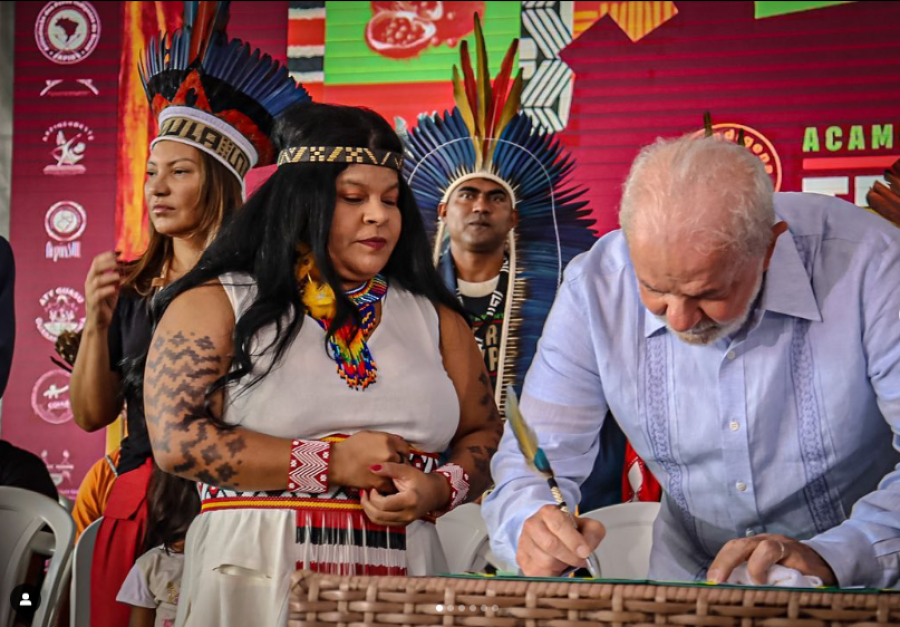Regional tourism has triggered profound cultural changes in Coqueiral, a fishing village of 1,200 inhabitants in Northeast Brazil. Traditional patrons have lost their grip on the community yet socioeconomic inequality is increasing. Male-female relationships are changing. Motorboats are replacing balsa rafts, and televised soap operas draw larger crowds than the possessed dancers of the local candomble. Many villagers embrace these new conditions and the luxuries that accompany them, but only a few foresee the extensive consequences for their community.
The impact of tourism on Coqueiral remained negligible until the mid-1970s. For decades, the owners of the nearby sugar mill visited their fenced beach houses but restricted their local contacts to patron-client relationships with a few coconut grove owners. These local patrons, in exchange for friendship, jobs for relatives, small payments at election time, and occasional business tips, suppressed local prices, arranged votes, and supervised the beach properties. They discouraged any association between the regional elite and poor villagers in order to prevent any erosion of their own power. These peasant entrepreneurs owned coconut groves and obstructed access to outside resources which could have financed technical innovations and enhanced the welfare of raft fishermen.
CHANGING PATRONS
In the 1970s, tourism intensified after a promotion campaign by the municipio (county). Pamphlets and television commercials praised the friendliness of the Coqueiral people, the clean beaches, the abundance of fish, the good communication, and the low land prices. Middle- and upper-class Brazilians from as far as Sao Paulo bought property. By 1978, summer residents occupied 60 of the 315 houses in the village. Several new ones were under construction. Areas north of Coqueiral are being promoted as prospective building sites in anticipation of a coastal highway that will considerably shorten the travel distance from Maceio, the state capital.
The tourism boom has led to an increase in the number of ties villagers have outside the community and the volume of outside resources flowing into the community. Summer residents provided interest-free loans to poor villagers who bought motorboats and within five years employed almost three-fourths of the maritime work force. Boats are faster, more comfortable, more maneuverable, and have a larger storage capacity than sail-driven rafts. Despite the higher earning potential on boats, which frequent the most profitable fishing spots, a raft owner earns on the average more money in less time than a boat fisherman. However, young fishermen prefer to work as hired hands on the boats, since they do not need to worry about the maintenance of fishing gear or the availability of bait.
The traditional elite used to rent rafts as a secondary source of income, but they have retreated completely from fishing. Motorboats are risky investments that demand much attention, special skills, and backup capital for contingent expenses. These elites prefer the steady income of their coconut plantations. This decision has been made at the expense of their economic and political supremacy. Tourism has allowed several villagers to increase their income. Now, local economic disparity is striking, with monthly household incomes ranging from US$25 to over US$500. The dozen motorboat owners are improving their houses and buying luxury goods, while relaxing social ties with their former fellow-fishermen. They visit bars less frequently, send their children to schools in the municipio center, and become more and more involved in municipio politics,
The palm grove planters are losing their political control of Coqueiral. They can no longer command local voters. Politicians sense this lack of authority and are cultivating ties with motorboat owners. The children of traditional powerholders are migrating to cities.
COMMUNITY CHANGES
In less than a decade, Coqueiral has experienced unprecedented changes. Comparison with other fishing communities in Northeast Brazil shows that the rapid social change of Coqueiral can only be attributed to tourism. However, it is imperative to distinguish between direct, indirect, and unique consequences of tourism. Coqueiral displays processes of change that are bound to occur in most Brazilian fishing communities, with or without tourism. Government programs and overall economic growth are slowly modernizing fisheries in many places. Everywhere, technical innovation and capital accumulation entail stratification, improved living standards for some, loss of folklore, commercialization of social relationships, and decline of social obligations such as the customary distribution of fish to the old and the poor.
Most villagers appreciate the arrival of tourists, although dissonant voices are becoming stronger. Advocates of tourism point to better public services such as road improvements, electricity, and running water. The availability of electricity has stimulated many fishermen to work harder in order to afford such luxuries as refrigerators, fans, and televisions.
ECONOMIC OPPORTUNITY
Tourism has increased the demand for handicrafts. Women and teenage girls plait straw into handbags, wallets, hats, shopping baskets, and carry-cots for babies, and the revenues, however small, are important during bad fishing seasons. Some women also work occasionally as servants, cooks, and cleaners. Besides their salary, they often receive clothing, food, and medicines. These new work opportunities have modified male-female relationships. Thanks to handicrafts and tourism, women can be financially independent. Several widows and divorced women said that they would never remarry because they were better off than before.
Tourism has stimulated a housing boom, providing jobs for two dozen men as masons, carpenters, electricians, and construction workers. Although all are employed by oral agreement and can be fired immediately, the demand for their well-paid services remains high. Villagers, however, complain that even with increased incomes, they can no longer afford the labor costs of home improvement.
The most serious complaint about tourism is that young couples are unable to start a family because of the high costs of houses and building sites. Coqueiral is surrounded by the sea, sugar and coconut plantations, mangrove swamps, and large areas owned by real estate development companies. Building permits must be obtained from the local tax collector, who consistently allots unoccupied sites to tourists. There are few open sites left, and tourists are even buying wattle and daub houses at exorbitant prices in order to construct bungalows in their place. Many villagers live in overcrowded houses and social conflicts are unavoidable. Some couples are leaving Coqueiral. Others have constructed houses near the mosquito-infested swamps, an unhealthy environment that has neither electricity nor running water.
CONFLICTS WITH TOURISTS
Increasingly, villagers accuse tourists of taking charge of Coqueiral. Once, two groups of tourists terrorized their neighborhood for several nights with a playful exchange of fireworks. The next day, one of the participants discovered his pleasure raft destroyed, supposedly vandalized by an angry villager. Much rancor was directed at a tourist who, racing his speedboat across the bay, unknowingly cut the anchor rope of a motorboat. Although the vessel was wrecked on the beach, the tourist refused to pay any damages.
In the future, such incidents will occur more often and increase the villagers' feeling that they are losing control of their own lives.
There has always been social inequality in Coqueiral, but in the past the poor did not need patrons to experience self-esteem. A man without a patron was not unworthy or deprived. Tourism has promoted luxury objects and valuable relationships as indicators of worth. No longer does the fulfillment of social obligations bring prestige. Today the accumulation of wealth and the display of powerful patrons contrasts one man's failure with another man's success. Tourism has made people strangers in their own village. Land is owned by outsiders and local resources are exploited by outsiders through the help of villagers. Autonomy, self-sufficiency, control, and poor living conditions are giving way to dependency, stratification, submission, and improved well-being.
Villagers are willing to give up some of their values for higher living standards. However, material improvement may not last. The enchantment of today's material goods may give way to nostalgia of bygone times, when all seemed equal and people felt morally obliged to help those in need. In many respects, tourism has been beneficial but at the same time it has made the villagers vulnerable to changes originating elsewhere and unable to revert to previous forms of interaction that helped them face sudden economic setbacks.
Article copyright Cultural Survival, Inc.



